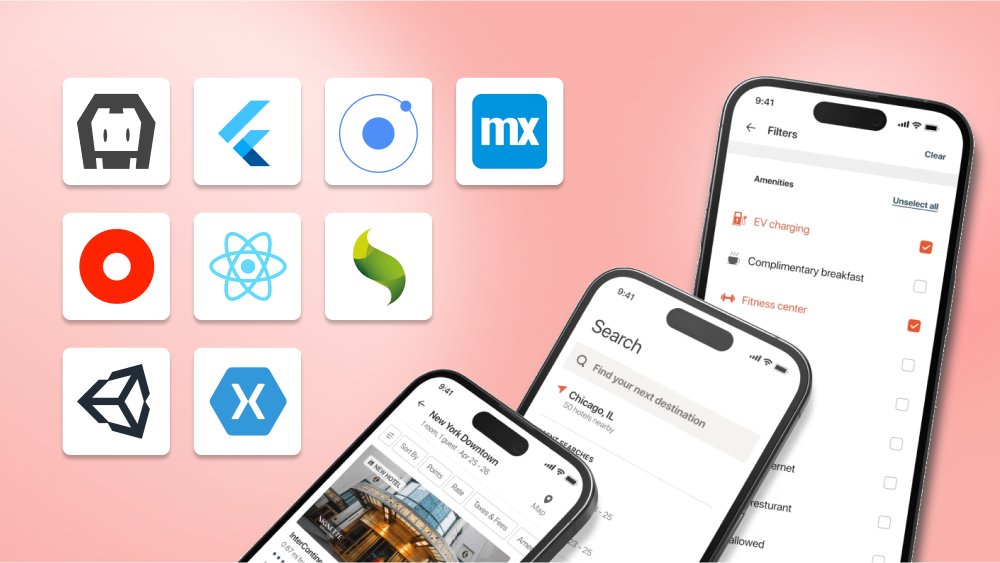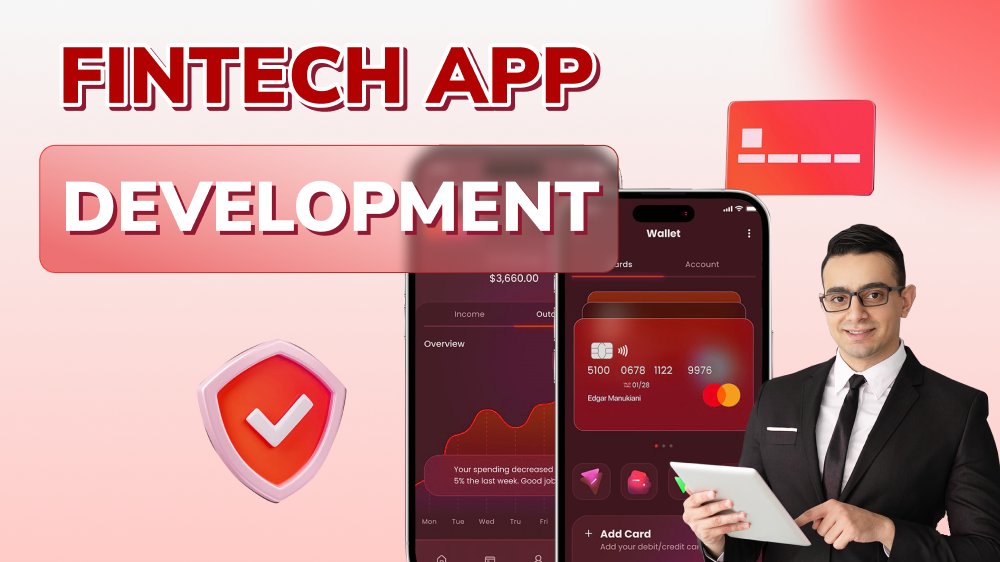The Ideal Structure of Mobile App Development Teams

Content Map
More chaptersAgree or not, we are entering the era of mobile technologies, in which smartphone penetration and app usage are steadily growing at speed. With a number of over 6.3 billion smartphone users across the globe, five to six hours per day spent on using mobile phones, and 70% of digital time spent on using apps, it is no doubt that mobile apps have become an essential part of our lives. In addition, the demand for applications over the years increased 31% year on year in the global revenue in 2021 (according to Statista).
In the first quarter of 2021, the mobile app revenue of Google Play and App Store made $36.7 billion and $31.8 billion, respectively. It does not stop there; the mobile app revenue is estimated to peak at $935 billion by 2023. The statistics reflect the enormous market potential for mobile apps as well as the current and impending growth of “apps culture.” That explains the reasons why tech companies of all sizes are compelled to jump into the venture of mobile app development and attempt to split the revenues in some way.
An efficient mobile app development team is the foundation of any successful app, and the app development team structure has a direct impact on the app development process. Therefore, having a solid software development team in place is a must if you want to step into the world of mobile apps. What, then, would a perfect team structure look like? Let’s unveil the “recipe.”
What Roles Make up a Typical Mobile Application Development Team Structure
A mobile app development team is the core of a project, which can make or break the final outcome. It is composed of multiple roles, and each one plays a vital part in the whole mobile app development process. The roles involved in a mobile app development team will vary depending on multiple factors, including the size of the project, its complexity, technology stack, timeframe, budget, and mobile app development methodology. Nevertheless, there are several key roles that should be present in every app development team to ensure the success of a project:
Product Owner (PO)
Starting with the brain of a project, a product owner is in charge of overviewing the whole app development process from A to Z, as well as steering the project toward success. Product owners have to be the ones who understand the project best, what its main objectives are, and how to achieve them. They represent the voice of the end-users and are responsible for translating their needs into requirements so that the development team can understand and work. In other words, the product owner is the link between the customer and the development team. Due to such significant duties, a project owner is often a part of the in-house team.
Product Manager (PM)
Every mobile development team entails a product manager, also known as a project manager sometimes. Normally, the project manager’s responsibilities are to ensure the project is completed on time, within the initial agreed budget, and up to the specified quality standards. Working closely with the product owner, development team, and other stakeholders, the project manager has a broad overview of the entire project; they need to pay attention to every detail while also keeping an eye on the big picture.
Monitoring the progress of work, managing risks, ensuring timely delivery of features, and maintaining good communication between all stakeholders are also some of the primary responsibilities of a project manager. Project managers also play an essential role in agile software development teams as they are responsible for facilitating sprints and scrum meetings. They need to have excellent organizational and leadership skills as well as be excellent communicators. More importantly, they have to be proactive and always think ahead so that potential risks can be avoided.
Business Analyst (BA)
A business analyst is tasked with conducting an in-depth analysis of the project requirements and translating them into specific deliverables that the development team can work on. They have to make sure that the final product meets all the necessary requirements, such as functionality, performance, security, etc.
In addition to that, a business analyst has to be able to understand the ins and outs of a project from both a technical and business perspective in order to set the proper goals for the whole team, estimate the project budget, and help with building an initial app prototype. This way, they can make sure that the end product is not only technically sound but also able to achieve the desired business objectives. Business analysts need to have strong analytical and problem-solving skills as well as excellent communicators.
UI/UX Designer
The UI and UX design of mobile apps are just as important as their functionality. A good design will make an application user-friendly, intuitive, and easy to use while also making it visually appealing. That’s where UX/UI designers come in. Their main task is to create a design that meets all the necessary requirements and facilitates a great user experience. In other words, they have to find a perfect balance between form and function. No matter what types of mobile apps you are developing, the importance of UI/UX design is undeniable.
A UI/UX designer must own strong attention to detail and a keen eye for aesthetics. In addition, a designer has to possess the ability to think from the user’s perspective and understand their needs and convert insights into design solutions. Additionally, strong communication and teamwork spirit are also required since designers have to work closely with other software development team members during the development stage.
Mobile App Developers
The next most important component of a mobile development team structure is developers who are in charge of bringing an app idea to life through the development stage. A mobile app developer is responsible for building app architecture and producing codes in accordance with the specifications of the business analyst and design team.
Based on whether you are planning to build cross-platform applications or native apps for Android and iOS, you will need software developers with the appropriate knowledge, skills, experience, and programming languages. Android and iOS developers should be proficient in Java and Kotlin or Objective-C and Swift, respectively, while knowledge and understanding of cross-platform frameworks, such as Xamarin, Flutter, React Native, Ionic, etc., are compulsory for developing cross-platform mobile applications.
The project’s requirements and budget will determine the size of a mobile app development team. For a basic mobile application, two or three developers should be enough. When the project expands and gets more complex, you may need aid from a backend developer who specializes in server-side development, API integrations, database management, etc.
Quality Assurance Engineer
The last piece that completes the portrait of a fine mobile app development team is quality assurance and software testing professionals. They can be QA engineers, QA specialists, or testers. They inspect the fully-fledged mobile app for usability, performance, security, and quality. Their responsibility is to ensure that it is bug-free, functional, responsive, and eventually adheres to all the requirements before it comes to the hands of end-users.
Quality assurance is undoubtedly important for many reasons. However, there is no immediate perfection, so the QA engineers have to be on the same page as the app developers and designers in every development and design stage in order to detect app bugs and crashes before they cause any harm. A QA engineer needs to have a methodical and detail-oriented approach and be able to think critically. They should also be familiar with various types of software testing techniques and approaches (Such as functional testing, regression testing, performance testing, usability testing, etc.), tools (Such as Appium, Robotium, and TestComplete), and bug tracking systems (Jira, Trello, etc.). Depending on the specific demand of each project, the scale of a QA team will vary. Hence, project managers should determine what qualifications they look out for from their quality assurance team and assemble it accordingly.
Outsourcing Mobile App Development Teams to a Third-party Service Provider? Why Not?

Coming up with a proper structure for mobile app development teams that fits your project and requirements is not a too daunting task, is it? However, it is not an easy endeavor to seek and hire team members due to the fact that the scarcity of software developers is alarming. At the end of 2021, the rate of unfilled IT job vacancies increased by 918,000 in the U.S; and according to a CNBC report, this phenomenon was projected to soon spread across the globe in 2022 and beyond. And looks like it’s already happened. Unsurprisingly, a lot of businesses are outsourcing their projects to third-party vendors located in popular IT outsourcing destinations, such as Vietnam, India, Thailand, and so on.
If you find your existing team is overloaded or not technically strong enough to handle the entire project in-house, turning to a mobile app development company for mobile app development outsourcing services or a dedicated team would be a wise choice. Outsourcing not only fills the gap in the IT workforce but also brings a number of competitive advantages to your reach. To successfully outsource mobile app development, you have to seek out a reliable IT partner among plenty of mobile app development outsourcing companies out there and decide the best fit for your project.
In 2019, there were over 218 billion mobile app downloads, which was 7% higher than the year prior. Undoubtedly, the figure kept increasing over the year, and the global market for mobile apps is predicted to reach 407.31 billion by 2026, growing at a CAGR of 18.4 from 2019 to 2026. The future of mobile apps is untold yet predictable. It will surely surge and even go beyond our imaginations. With such a bright future up ahead, there will be plenty of opportunities for more mobile app development companies to join this fertile market and start making apps. How about you? Are you preparing to build a mobile app too? No matter what type of mobile application you intend to build, make sure you get a well-composed mobile app development team first.







